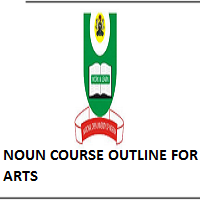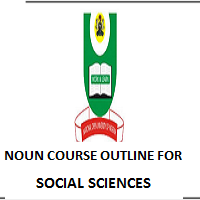NOUN Faculty of Agricultural Sciences
History
This article deals on NOUN Faculty of Agricultural Sciences. A proposal for the establishment of the Faculty of Agricultural Sciences (FAS) was presented to the Senate by the immediate past Vice-Chancellor, Professor V. A. Tenebe at its 68th regular meeting held on Tuesday, 24th January, 2012. A committee was set up under the chairmanship of the Dean, School of Post-Graduate Studies, Professor Israel F. Adu, who is an agriculturist.
At the 69th meeting of the Senate held on Tuesday, 24th April, 2012, the report and approval for the establishment of the Faculty of Agricultural Sciences from the existing Faculty of Science and Technology was ratified. The Faculty officially took off in July 2014 with Prof. Matthew Dada Alegbejo as the pioneer Dean. Professor Nda E. Mundi is currently the Dean, School of Agricultural Sciences effective from June 1st 2015.
Vision
To be regarded as the foremost Faculty, providing highly accessible and enhanced quality education in all areas of agriculture through Open and Distance Learning (ODL) and graduates suitable for the development of the society through teaching, learning and research.
Mission
To provide functional, cost-effective and flexible agricultural learning required for efficient agricultural production, self employment and sustainable development in various aspects of agriculture.
Aims and Objectives
The Faculty of Agricultural Sciences aims to provide:
- Training opportunity for sustainable bio-resource management and entrepreneurship in agricultural production.
- Opportunity for vocational training and professional workshops for retooling/reskilling in different areas of agriculture.
- Relevant supportive resources for teaching and research in agriculture and allied disciplines through the Open and Distance Learning (ODL) mode of delivery.
- Opportunity for specialization and advance study in major disciplines of agriculture.
- Enhanced agricultural production through community-based and farmer-driven research.
General Information
ENTRY REQUIREMENT FOR PROGRAMMES IN THE FACULTY OF AGRICULTURAL SCIENCES
The Faculty of Agricultural Sciences at its 7th Faculty Board Meeting held on 18th January 2019 reviewed its admission requirements in line with NUC benchmark and recommended the following:
- The Faculty should commence admission at 100 level in addition to the direct entry (200 level) currently in practice.
- National Certificate of Education (NCE) with credit passes in any one of the options listed below may be admitted into 200 level of the programme:
i. Agricultural Science
ii Biology/Chemistry
iii. Integrated Science/Chemistry
iv. Home Economics and related science based courses
- HND with lower credit pass in Agriculture or Science related programmes with credit passes in requisite subjects at O’ Level (indicated in table below) with 2 years cognate experience may be admitted into 300 levels and may be required to take relevant courses at 200 level.
- Holders of ND, NCE, HND, Bachelor Degree and PGD in the following related areas of study may be admitted to study B. Agriculture and Post-graduate Diploma programmes of the Faculty provided they possess the minimum entry requirements for B. Agriculture programmes. These areas are;
- Biology/Chemistry
- Integrated Science/Chemistry
- Home Economics
- Food Nutrition and Dietetics
- Microbiology
- Biochemistry
- Environmental studies
- Agric Engineering
- Post-Harvest Technology
- Economics/Mathematics
- Forestry &Wild life
- Aqua culture, Marine study
- Hospitality and Tourism
- Cooperative Study
- Economics
- Agric. Education
In respect of above, the Faculty is recommending the under listed criteria as new admission requirements for the Faculty of Agricultural Sciences.
Undergraduate Programmes
To be admitted into the 5-year B. Agriculture, or B. Aquaculture and Fisheries Management degree programmes. Candidates must have:
(100 Level)
5 Credits in WASC/GCE/NECO/NABTECH subjects including English, Mathematics, Chemistry, Biology/Agricultural Science and any one of the following: Physics, Geography or Economics, at least a pass in Physics.
Direct Entry (200 Level)
- Two “A” Level passes in the relevant subjects. (Chemistry and one of Botany/Zoology/Biology/Physics/Agric. Sciences, Geography, Maths, Geology, Economics and Health Sciences)
- ND with a minimum of upper credit plus 5 credits in WASC/GCE/NECO subjects including English, Mathematics, Chemistry, Biology/Agricultural Science and any one of the following: Physics, Geography or Economics, and at least a pass in Physics is required for admission into 200level.
- NCE with credit passes in any one of the options below may be admitted into 200 level of the programme: Agricultural Science, Biology/Chemistry, Integrated Science/Chemistry, Home Economics and related science based courses.
- HND with lower credit pass in Agriculture or related programmes, and credit passes in requisite subjects at O’ Level with 2 years relevant experience may be admitted into 300 levels and may be required to take relevant courses at 200 level.
Post-graduate Programme
- PGD Agricultural Extension and Management
- Candidates seeking admission for PGD Agricultural Extension and Management must possess a Bachelor’s degree with at least 3rd class division. Candidates with Pass Degree and minimum of 3 years cognate experience in related fields may be accepted.
- HND holders with Lower Credit in Agricultural Sciences or related disciplines may be admitted. Holders of Bachelor degree in Basic Science, Biological/Earth Sciences and Agricultural Sciences from universities recognized by NOUN may be admitted.
The related science based courses are as follows:
Biology/Chemistry, Integrated Science/Chemistry, Home Economics, Food Nutrition and Dietetics, Microbiology, Biochemistry, Environmental studies, Agric Engineering, Post-Harvest Technology, Economics/Mathematics, Forestry &Wild life, Aquaculture, Marine study, Hospitality and Tourism, Cooperative Study, Economics and Agric. Education.
Graduation Requirements
To graduate, a student shall have undergone 4 or 5 years of study depending on his entry point, including 12 calendar months of Farm Practical Year (FPY/SIWES). The activities of the farm practical year should include periodic seminars on the student’s work as a way of stimulating interest as well as the presentation of a written report to be graded at the end of the year.
Course workload must meet the graduation requirements of the university. However, in doing so, the student must earn a minimum of 167 credit units for the five-year programme and 132 credit units for the four-year (direct entry) programme in agriculture and related fields as indicated under course requirements.
The submission of an undergraduate project report based on supervised research is a graduation requirement, which must not be compromised. This requirement exposes the student to problem-solving techniques and provides him with the ability to organize ideas from literature and research findings. In short, it prepares the student for the work ahead and for further training at the post-graduate level. This area of academic preparation needs to be maintained and developed further.
Related Post:
- Procedure for Change of Course Open University, NOUN
- How To Check NOUN Required Credit Unit for Graduation
- List of Programmes Offered in NOUN
- Noun Business Plan (Gst302) And How To Upload
- How to Upload Completed Final Year Project/Seminar and Practicum on (NOUN PAS)
- Noun Official Websites
-
What You Should Know About National Open University Of Nigeria




